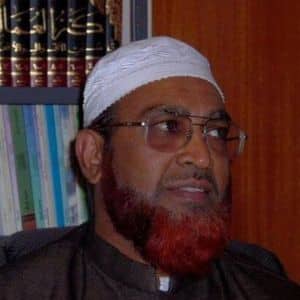Zakat Policy
IDRF (International Development and Relief Foundation) is a Canadian registered charitable organization dedicated to empowering the disadvantaged people of the world. IDRF provides effective humanitarian aid and sustainable development programs, without discrimination, based on the Islamic principles of self-reliance, social justice and human dignity.
IDRF seeks to provide the most vulnerable communities with the means to create lives of dignity, equality and sustainability, toward a more just world. Our projects are particularly effective as local partners implement them, and therefore are culturally sensitive and provide targeted assistance.
For 40 years, IDRF has successfully implemented Relief and Development projects in Asia, Africa, the Middle East, Eastern Europe and the Americas.
Overview
Your Title Goes Here
Your content goes here. Edit or remove this text inline or in the module Content settings. You can also style every aspect of this content in the module Design settings and even apply custom CSS to this text in the module Advanced settings.
1.2 Policy Statement
IDRF’s Zakat policy aligns with best practices across the international charitable sector responsible for disbursing Zakat to the poor and needy through short-term relief efforts and long-term development programs.
IDRF upholds the practice of transparent and accountable governance of zakat funds rooted in the foundational principles outlined in the Qur’an and enacted in the prophetic example. IDRF abides by the legal requirements of the Government of Canada Nonprofit Law, Income Tax Act, Canada Revenue Agency Charities Directorate, and the varying provincial and territorial legislations.
1.3 How does IDRF Approach Zakat?
At IDRF, we take the responsibility of handling Zakat exceptionally seriously. IDRF’s goal is to provide Canadians with a trusted, transparent and reliable means to fulfill their Zakat obligations. IDRF facilitates the use of Zakat in our operations in accordance with the specific requirements of Zakat.
At the heart of IDRF’s zakat policy is ensuring the dignity and well-being of the recipients we serve. Within the context of IDRF’s humanitarian work and related projects, IDRF views zakat as the wealth of the poor and endeavours to give recipients maximum autonomy while ensuring proper oversight & CRA compliance
1.4 Purpose of this Policy
IDRF recognizes the need to effectively implement and communicate how we approach, use, and administer Zakat funds in our humanitarian projects worldwide. IDRF intends to clearly help define and guide both donors and IDRF to the importance of upholding Zakat principles and also maintaining rigorous standards of excellence in the use of Zakat in ongoing and future projects. The purpose of this policy is to:
- Communicate the concept of Zakat, and its specific role and application in IDRF’s work.
- Establish guidelines for IDRF on which projects are zakat eligible.
- Provide transparency and accountability around how IDRF collects, administers, and uses Zakat.
- Help clarify specific issues relating to our zakat activities, such as questions around which projects are Zakat eligible and how Zakat funds are collected and administered for such projects.
- Identify different types of right holders of zakat, and help donors understand categories of wealth on which zakat is applicable.
- Continue to refine and expand the processes related to ensuring the collection, administration, allocation, distribution, and impact of zakat funds used by IDRF are transparent, effective, efficient, and aligned with Islamic principles and the best practices of humanitarian development.
- Improve IDRF’s internal and external transparency regarding the collection, allocation, disbursement, use and impact of zakat funds.
- To ensure appropriate governance of Zakat from a theological perspective and adhering to the federal laws around charitable funds.
- Help ensure that IDRF’s zakat activities are conducted in the most transparent and Islamically-compliant manner possible.
- Direct IDRF to utilize zakat within our programs in a manner that continues to maximize the impact and efficiency of our work in reducing poverty, and inequality, and uplifting disadvantaged communities around the world.
- Guide IDRF Board of Directors, management, and staff on how zakat should be collected, administered, distributed, and the impact zakat has in driving humanitarian work and development projects.
1.5 Terminology
Zakat (sometimes spelled zakah) is an obligatory aspect of Islam, and requires Muslims who have certain amounts or types of wealth, within specific conditions, give a portion of their wealth to specified categories of individuals. For the purpose of this document, zakat refers only to money given to IDRF by zakat-eligible individuals who want IDRG to redistribute this money to the poor and needy.
Sadaqah refers to a more general and less prescribed charity given to IDRF for distribution in a discretionary manner, which may be used by the organisation for feeding the homeless, covering operating costs, running programs and the like.
Nisab is the minimum amount of wealth or savings that a Muslim must have before being obliged to give Zakat.
Zakat
Your Title Goes Here
Your content goes here. Edit or remove this text inline or in the module Content settings. You can also style every aspect of this content in the module Design settings and even apply custom CSS to this text in the module Advanced settings.
2.1 What is Zakat?
Almsgiving is a common practice in all the world’s major religious and charitable traditions. In Islam, Zakat is a sacred obligation of every able Muslim, rooted in the principles of compassion and justice, and one of the five pillars of Islam. It is a powerful form of charity that requires Muslims with accrued wealth to donate a portion of it to those in need – including orphans, individuals in debt, those who are stranded during travel, and those who live in poverty. By honouring the responsibility to serve those who are less fortunate, Muslims demonstrate their devotion and connection to Allah.
Since Zakat is an obligatory form of charity, every Muslim who meets the eligibility criterion must pay Zakat. These donations are then re-distributed to the Muslim community on an annual basis.
2.2 The Spirit of Zakat
Zakat is more than a prescribed form of almsgiving. Neither is it a tax. As an act of faith, it is an offer, made in kind, of wealth that an individual holds on behalf of the poor, vulnerable, and deserving. It is not a favour from the giver, rather the recognition of the right of the recipients as the real designated owners of this wealth.
The Qur’an says
“In their wealth and properties is the right of the poor, the beggar and he who is in deprivation.” (51:19).
Through Zakat, one acknowledges that their wealth and provisions are a double blessing, for them to enjoy and use, but also for them to support disadvantaged people. It teaches those who are more fortunate the power of self-restraint and offers us a means to better live with moral integrity and justice. Helping others in need therefore is not viewed as a charity, it becomes a duty.
The distribution of Zakat from those who have extra to those in need connects our economic well-being to a spiritual one, and our personal livelihood to the social space. Zakat literally means “to purify or cleanse” and is mentioned in numerous verses of the Qur’an. Zakat purifies one’s wealth and reminds us that all worldly possessions belong to Allah alone and must be shared with the needy.
2.3 Who is Eligible to Receive Zakat
As a form of communal welfare that ensures the most vulnerable members of society are cared for, there are specific categories of people who qualify to receive Zakat.
Since Zakat is not a form of Sadaqah (voluntary and general charity), the distribution of Zakat is designated for categories of people identified and entitled to it in the Qur’an [At-Tawba] 9:60:
Alms are meant only for the poor, the needy, those who administer them, those whose hearts can be won over, those in bondage, to help those in debt, for God’s cause, and for travellers in need. This is ordained by God; God is all knowing and wise.
From this verse, eight categories of eligible people are clearly specified.
- The Poor – are those individuals or households who lack sufficient financial resources and struggle to meet their basic, living needs and do not meet the Nisab limit.
- The Needy – are those amongst us in extreme poverty who do not possess significant material wealth, the destitute.
- Those Who Administer Zakat – are the individuals or organizations responsible for collecting and distributing zakat, in an amount fair to their labour and work.
- Those Whose Hearts Can be Won Over – includes people who may not have heard about Islam or who may have a negative understanding of Islam and Muslims, as well as for those involved in public relations, engaged in interfaith and inter communal work, teaching Islam to others, and for those who may have become Muslim but face difficulty in practicing their faith.
- Those in Bondage – are individuals who can be given another chance, freed, or supported although in captivity, incarceration, or detention.
- The Indebted – one whose debts exceed their assets and net assets (after deducting his liabilities) is below the Nisab limit.
- For the Cause of God – refers to those who engage in Islamically sanctioned military and defensive actions, the person on Pilgrimage, and in some cases students of Islamic knowledge.
- Travellers in Need – individuals who are temporarily away from their permanent home on a journey, and is cut off from their financial resources still has right to food, shelter, and other necessities.
IDRF only distributes and operates in zakat from the first TWO categories (The Poor, The Needy) of rights holders (directly or through projects), while ensuring individual ownership for recipients.
2.4 Recipients of Zakat
Around the world, we work with populations and communities to provide emergency humanitarian assistance and support long-term development. In many places, the communities which we work alongside are of a majority Muslim faith.
To be eligible to receive Zakat, the recipient must be poor and/or in need. A poor person is someone whose property, in excess of his basic requirements, does not meet the level of the nisab threshold.
The recipient must not belong to your immediate family; your spouse, children, parents and grandparents cannot receive your Zakat. Other relatives, however, can receive your zakat.
We also receive Sadaqah and other forms of Muslim charitable giving as part of our ongoing activities.
Zakat payments are restricted to responding to emergency situations to save lives in Muslim majority communities and supporting specific development projects that are taking place in Muslim majority communities.
2.5 How much Zakat does one Owe?
Zakat is different to other forms of Muslim charitable giving such as Sadaqah, which is non-obligatory and voluntary. However, since Zakat is required of every mature and earning Muslim, regardless of gender, there is a minimum threshold and certain guidelines that help determine how much zakat is due.
In Canada, Zakat is calculated based on one’s annual income and assets. Based on scholarly consensus and prophetic tradition, the rate of zakat is calculated as 2.5% of a person’s accumulated wealth which exceeds the minimum amount they need for the basics of everyday living, or nisab. Furthermore, the wealth that is eligible for zakat must have been in one’s possession during the previous 12 months (lunar year).
One can calculate their zakat independently using tools like our zakat calculator.
2.6 When is Zakat due?
Zakat can be paid any time during the Islamic lunar year, however the majority of Muslims choose to pay their Zakat in the month of Ramadan. It is advised to pay Zakat as soon as it becomes due because the poor become the rightful owners after the year has passed.
2.7 What wealth is Zakat eligible?
As essential as it is to determine who is eligible for Zakat, for the giver it is also essential to know what types of wealthon which they may owe zakat.
Zakat is owed on the following items:
- Cash
- Business inventory
- Stocks
- Properties strictly intended for trading
- Gold and silver or jewelry possessed as a store of value, excluding jewelry used for regular, personal use.
- Mutual funds
- Pensions
- Agricultural products (Zakat is due for farmers at the time of harvesting and it is either 5% or 10% from the total amount of the crop depending on the method of irrigation)
Zakat is not due on the following items:
- One’s house or place of residence
- Vehicles used for personal purposes and needs.
- One’s clothes, furniture or any personal item.
- Land, buildings or equipment used within the business operation as fixed assets.
- Rental properties
- Livestock
For nuanced and highly specific calculations, IDRF recommends seeking the assistance of local religious scholars and/or accounting professionals. For general calculation, see our zakat calculator.
2.8 Zakat-ul-Fitr
Giving during Ramadan as an act of faith, Zakat-ul Fitr is a ‘special’ kind of charity because it purifies the fasting person of the shortcomings in his or her observance of fasting during the month.
Zakat-ul-Fitr is sometimes also called Fitrana or Fitrah, related to an Arabic word which means breaking a fast, as is done daily in Ramadan. Zakat-ul-Fitr thus refers to what is to be given when the month of fasting comes to an end. It is to be distributed before the end of Ramadan.
The amount given in Zakat-ul-Fitr should be enough to cover a single meal for a single individual and must be given on behalf of each member of a family. IDRF follows local market prices on determining the value, which is currently $15 per person and can be donated to IDRF as part of other religious giving.
2.9 Zakat-ul-Fitr Collection
Since the primary collection method for Zakat-ul-Fitr is through mosques, IDRF asks local mosques to pledge anticipated Zakat-ul-Fitr collections in advance of Ramadan. IDRF then allocates and spends based on the amount of anticipated collection during the month of Ramadan. Where a mosque collects fewer funds than anticipated, IDRF will make up the difference through Sadaqa or other Zakat funds. If a mosque collects more funds than estimated, then IDRF works to ensure proper distribution of the wealth to the poor as quickly as possible, within the three days of Eid following Ramadan.
Use of Zakat
Your Title Goes Here
Your content goes here. Edit or remove this text inline or in the module Content settings. You can also style every aspect of this content in the module Design settings and even apply custom CSS to this text in the module Advanced settings.
3.1 Scope
We save lives through our humanitarian work at the grassroots, local level to promote development in some of the world’s poorest communities. We support people to come out of poverty by working on access to education, healthcare, food, improving livelihoods, providing clean water and upholding women’s and children’s rights.
By giving Zakat to IDRF, the giver can be sure the amount will help those suffering from poverty or hardship. We spend all Zakat payments per the procedures detailed in the sections below.
Specifically, IDRF restricts the the allocation of zakat payments to two areas of our work:
- Responding to emergency situations to save lives in Muslim majority countries or areas.
- Supporting development projects that are taking place in Muslim majority countries and focused on communities seeking to lift themselves out of poverty.
The destination countries, projects and communities that will be receiving support from Zakat payments will be listed on IDRF’s Zakat webpage and under continuous review by our team and our Shariah Compliance Council.
3.2 Collecting Zakat
IDRF’s channels of collecting and spending Zakat, whether in person or online, are clearly defined and contain specific and relevant information to help ensure donor clarity and transparency over their Zakat donation and where and to whom it will be spent.
IDRF staff who engage directly with Zakat collection in the community are educated on the principles of zakat, and on providing specific and relevant information to Zakat-eligible projects and options for the donor.
While IDRF operates under the working experience that the majority of Zakat funds are donated and received in Ramadan, IDRF collects Zakat all year round, although the frequency of collection can be split through the year according to the wishes and Zakat schedule of the donor.
3.3 Administration of Zakat Payments
In accordance with the requirements of Zakat, IDRF administers payments to various projects as follows:
Separation of Zakat Funds
- When any Zakat donation is received, it is separated from all other general donations into a restricted, separate Zakat Fund within IDRF. This ensures that Zakat funds are accounted for independently of non-zakat funds and allocated to zakat eligible projects.
- Funds are directed to the identified list of Muslim-majority countries where IDRF implements humanitarian projects, focused on wherever the need is greatest at that moment in time.
- All Zakat donations collected are required to be spent within the annual cycle of a lunar year form when received.
3.4 Turnaround Time for Distribution of Zakat
The timely distribution of Zakat is an essential element of the Zakat process. Since the Lunar year marks the period during which an individual must fulfill zakat obligations on accrued wealth, IDRF follows the well established practice of distributing zakat within the lunar year of having received any zakat donation. However, IDRF seeks to distribute all zakat within 6 months of having been received, and in most cases as soon as possible.
This allows for the immediate allocation of zakat to ongoing eligible projects, while also ensuring that new or emergency projects can be carefully implemented in a sustainable and zakat compliant manner.
In Ramadan when IDRF receives the bulk of zakat donations, allocation happens immediately during the month to the existing array of zakat eligible projects, including Fitrah specific programs. After Ramadan, further zakat funds collected are similarly allocated to any specific project a donor may have indicated, or to upcoming zakat eligible projects.
3.5 How are Zakat funds utilized?
IDRF uses Zakat received to support individuals and specific groups who qualify as zakat-elegible recipients and who, by virtue of receiving Zakat, demonstrate an immediate or eventual alleviation from hardship and/or poverty.
Zakat funds are restricted to responding to emergency situations to save lives in Muslim majority communities and supporting specific development projects that are taking place in Muslim majority communities.
Zakat funds may be used to support tangible goods and practical support, as well as more intangible benefits such as education, training and health promotion. This may include the direct costs of purchasing goods and services, as well as the necessary in-country logistics, transport and staff required to provide the services and help needed.
In utilizing and distributing Zakat funds, IDRF notifies potential recipients that what they are receiving is in part or fully being provided through Zakat.
3.6 Other Considerations
IDRF uses Zakat funds to provide direct help through our many, varied project interventions. However, this could be in whole or part payment of the project activities. Other funds supporting the project could come from a variety of other sources, including sadaqah donations.
Similarly, IDRF works, helps, and serves many specific diverse communities, even within Muslim majority countries. IDRF does not discriminate against the support we provide based on religion. As a non-religious institution, the scope of our charitable work is determined by humanitarian principles, which include all those in need, as respected and practiced by all respected humanitarian organizations.
For example, IDRF is working in a Muslim majority community, but also contains a small number of non-Muslims in equal need of help, everyone of similar need will be included. IDRF uses its local assessment and understanding of any recipient community to then determine if or what portion of non-zakat funds may then come from other sources, like sadaqah donations.
3.7 Shariah Advisory Counil
Our consultation phase identified the importance for IDRF to establish a small group of individuals to act as voluntary advisors in relation to our Zakat offer. These individuals need to be well versed in Islamic principles and Zakat and be willing to develop an understanding of IDRF and the particular needs, concerns, and context of the Canadian Muslim community in respect of Zakat. They will offer their knowledge, expertise and advice to inform IDRF ’s understanding of Zakat and ensure it evolves in a robust and appropriate manner.
The members of the Shariah Advisory Council will:
- Provide ongoing review of our policy & implementation procedures and advise accordingly on Zakat compliance requirements.
- Advise on how to most effectively communicate to donors and supporters in regards to Zakat implementation.
- Meet at least once a year to review and assess the progress of Zakat at IDRF.
- Advise on the eligibility of the specific restricted projects and/or communities and individuals proposed as recipients of Zakat.
- Be involved in raising IDRF ’s profile in this space for engagement and fundraising purposes. This may include opening up networks if appropriate, speaking at IDRF or Zakat events, promoting our policy and work online and meeting stakeholders interested in this area.
3.8 Formal Approval of Zakat Campaigns
For every program and project initiated by IDRF, there are many interconnected layers of preparation and consideration that lead to long-term and holistic sustainability.
Ensuring that all aspects are guided by the shariah is essential, from program architecture and the rights of the recipients, to the launch of the campaign and the collection and distribution of zakat donations.
For all programs, our local partners are involved in the process of design, beneficiary selection, and project implementation. This necessitates working with local religious authorities to also make sure that our projects are in line with local applications and understanding of Shariah.
Prior to the launch of any major campaign our Shariah Advisory Council meet for review. Similarly, they meet at the beginning of IDRF’s fiscal year with our Operations team and review our Zakat campaigns to make sure they are in-line with Shariah standards. They also meet at other agreed upon times throughout the year.
3.9 External and Internal Auditing
As a leading faith-inspired organization in the Canadian Muslim community space, transparent and accurate financial practices are of the utmost importance and responsibility to IDRF.
Every year IDRF is audited by a leading independent accounting firm, which provides it’s own external assessment of all of IDRF financial practices. Our Board of Directors, and our Shariah Advisory Council reviews all external audit results.
To view our latest financial audit, see our financial annual report
IDRF’s Shariah Advisory Council internally reviews our financial practices. On a yearly basis they assess the overall content and application of our Zakat Policy, as well as conferring on a quarterly basis to provide oversight and council on upcoming projects, key issues, shariah compliance, key issues, and contextual applications.
In addition, the Shariah Advisory Council completes an annual internal audit of IDRF’s use of zakat funds. They independently assess and verify zakat funds have been allocated to zakat projects over the previous year in alignment with our Zakat Policy. Their assessment is then shared with leadership and Board of Directors.
Shariah Advisory Council

Imran Ally

Sheikh Navaid Aziz

Dr. Mohammad Iqbal al-Nadvi

